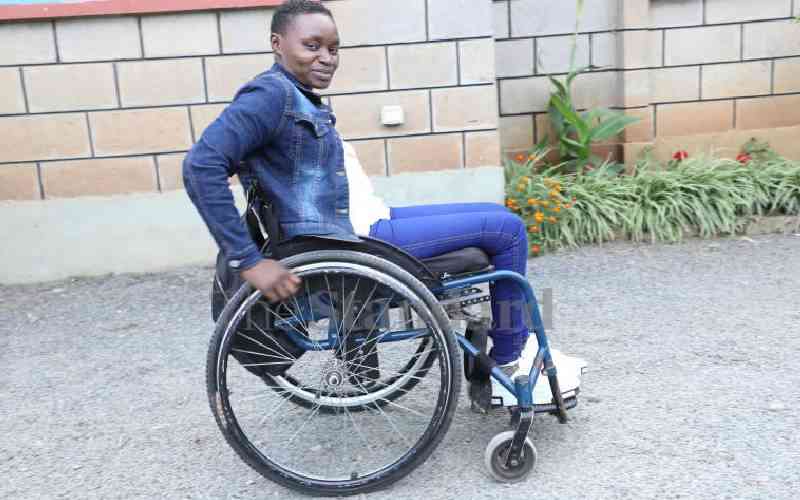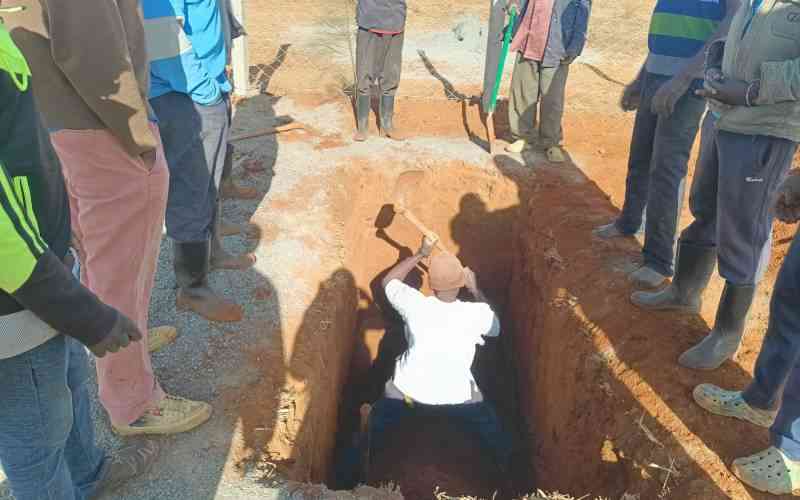NAIROBI: It comes as no surprise that the Constitution of Kenya Amendment Bill (2015), also known as the Okoa Kenya Bill, is laden with provisions to fix the Independent Boundaries and Electoral Commission (IEBC). The main sponsor of the Bill, CORD, has over the last three years been agitating for reform of the commission in order to even the playing field ahead of the 2017 elections.
As a result, Clause 1, Clauses 7 through 12, and Clauses 15 and 16 of the Bill focus exclusively on the functions of the IEBC and the electoral adjudication process. Having failed to address the gaps in our electoral management through Parliament, CORD has resorted to go directly to the people.
But this is a very expensive way of fixing the IEBC and the overall electoral system. The Bill comes with a lot of goodies for the different institutional actors required to make CORD’s proposal amendments a reality. Revenue allocation to counties has been tripled from 15 to 45 per cent. In addition, counties will be guaranteed 20 per cent of the revenue from national resources within their jurisdiction — with 15 per cent going to the counties and five per cent to local communities in natural resource rich areas.
Given the current governance and absorptive capacity challenges facing nearly all the counties, is it logical to triple their revenue allocation without any good faith effort to improve their capacity to manage these resources?
The Bill also proposes to enshrine the Constituency and Ward Development Funds into the Constitution. This will essentially shield the CDF (and proposed WDF) from constitutional challenges. It will also add the costs to having a strong and functional government. As I have argued before, there is an institutional logic of having the CDF. We must separate our legislators from the control of the Executive and national ethnic chiefs. The CDF promises to do this by giving MPs resources to finance their own re-election. Electorally independent MPs who get re-elected at high rates will serve to strengthen the institution of the National Assembly. It does not matter whether they are Charles Keter or Mutava Musyimi. The more time they spend in the National Assembly, the more they will contribute to the strengthening of the institution.
But there is no similarly compelling case for the creation of the WDF. The whole point of the counties is that they were supposed to be grassroots developmental machines. For this reason, any development work that is done needs to take place through the county executive system. We should, therefore, not subsidise the political careers of the Members of County Assemblies (MCAs). This is because the benefits, unlike the case of the National Assembly, are not worth the cost. And furthermore, we have a Senate that is mandated to act as a check on the counties. All this obviates the need to engineer a faster evolution of intra-county accountability chains through the WDF. CORD would have served Wanjiku much better by strengthening the developmental capacities of the counties—especially in light of the proposed tripling of their revenue allocation.
Lastly, the other goodie in the basket is the proposed public sector job allocation formula. CORD is proposing that no ethnic community shall have more than 15 per cent of appointments in any state organ of the national government and state agencies; and that the requirement applies to private companies that do business with the government. This is a laudable initiative designed to eliminate historical disparities faced by Kenya’s many marginalised groups. But it is wrong-headed in its application. Again, instead of linking this national initiative with specific policies at the county level to equalise education and access, CORD has chosen a politically salient strategy of fixing a real problem. Wanjiku should be warned, however, that not all of our problems require political solutions. Besides the clauses to fix the IEBC, and those to buy support for those fixes, the Okoa Kenya Bill also has some fixes for the National Land Commission, appointments to the Judiciary, and the Ethics and Anti-Corruption Commission. But these amendments will be overshadowed by the very political clauses outlined above. The most important question that Kenyans should ask the Okoa Kenya brigade is: Is there a cheaper way to fix the IEBC? Given that once we give the counties 45 per cent of all revenue we shall not be able to take it back, is the long-run cost worth the hypothesised short-term gain in 2017 for a few politicians?
The Okoa Kenya initiative was supposed to embody the spirit of Kenyan progressives. But by only focusing on political issues that benefit political elites, it has failed to live up to expectations. There is a lot in the Bill for Wenyenchi, but very little for the common mwananchi.
 The Standard Group Plc is a
multi-media organization with investments in media platforms spanning newspaper
print operations, television, radio broadcasting, digital and online services. The
Standard Group is recognized as a leading multi-media house in Kenya with a key
influence in matters of national and international interest.
The Standard Group Plc is a
multi-media organization with investments in media platforms spanning newspaper
print operations, television, radio broadcasting, digital and online services. The
Standard Group is recognized as a leading multi-media house in Kenya with a key
influence in matters of national and international interest.
 The Standard Group Plc is a
multi-media organization with investments in media platforms spanning newspaper
print operations, television, radio broadcasting, digital and online services. The
Standard Group is recognized as a leading multi-media house in Kenya with a key
influence in matters of national and international interest.
The Standard Group Plc is a
multi-media organization with investments in media platforms spanning newspaper
print operations, television, radio broadcasting, digital and online services. The
Standard Group is recognized as a leading multi-media house in Kenya with a key
influence in matters of national and international interest.








